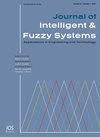基于模糊感性偏好的产品动态排序集成三角模糊KE-GRA-TOPSIS方法
IF 1
4区 计算机科学
Q3 COMPUTER SCIENCE, ARTIFICIAL INTELLIGENCE
引用次数: 0
摘要
随着社会的发展,公司生产出更多同质化的产品,将客户的需求从功能转向情感。因此,顾客如何快速地选择符合他们感性偏好的产品已成为一个关键问题。然而,顾客的感性偏好因人而异,而且是模糊和不确定的,这构成了挑战。为了解决这一问题,本文提出了一种将三角模糊感性工程(TF-KE)与灰色关联分析(GRA)和理想解相似性排序偏好技术(TOPSIS)相结合的TF-KE-GRA-TOPSIS方法。首先,基于KE和模糊理论构建感性评价体系。定义了一个动态三角模糊感性偏好相似度决策矩阵(TF-KPSDM),以模糊感性偏好量化顾客满意度。其次,利用critical (Criteria Importance through intercriterion Correlation)和熵导出动态目标权重,并通过博弈论进行优化,得到更优的组合权重;第三,GRA-TOPSIS方法利用TF-KPSDM和组合权重对产品进行排序。最后,以电动自行车的感性偏好选择为例,结果表明,该方法稳健地避免了秩反转,取得了比比较模型更高的精度。本研究可以帮助企业根据顾客的感性偏好,动态地向顾客推荐产品,提高顾客满意度和销售额。本文章由计算机程序翻译,如有差异,请以英文原文为准。
Integrated triangular fuzzy KE-GRA-TOPSIS method for dynamic ranking of products of customers’ fuzzy Kansei preferences
As society evolves, companies produce more homogeneous products, shifting customers’ needs from functionality to emotions. Therefore, how quickly customers select products that meet their Kansei preferences has become a key concern. However, customer Kansei preferences vary from person to person and are ambiguous and uncertain, posing a challenge. To address this problem, this paper proposes a TF-KE-GRA-TOPSIS method that integrates triangular fuzzy Kansei engineering (TF-KE) with Grey Relational Analysis (GRA) and Technique for Order Preference by Similarity to an Ideal Solution (TOPSIS). Firstly, a Kansei evaluation system is constructed based on KE and fuzzy theory. A dynamic triangular fuzzy Kansei preference similarity decision matrix (TF-KPSDM) is defined to quantify customer satisfaction with fuzzy Kansei preferences. Secondly, dynamic objective weights are derived using Criteria Importance Though Intercrieria Correlation (CRITIC) and entropy, optimized through game theory to achieve superior combined weights. Thirdly, the GRA-TOPSIS method utilizes the TF-KPSDM and combined weights to rank products. Finally, taking the case of Kansei preference selection for electric bicycles, results indicate that the proposed method robustly avoids rank reversal and achieves greater accuracy than comparative models. This study can help companies dynamically recommend products to customers based on their Kansei preferences, increasing customer satisfaction and sales.
求助全文
通过发布文献求助,成功后即可免费获取论文全文。
去求助
来源期刊

Journal of Intelligent & Fuzzy Systems
工程技术-计算机:人工智能
CiteScore
3.40
自引率
10.00%
发文量
965
审稿时长
5.1 months
期刊介绍:
The purpose of the Journal of Intelligent & Fuzzy Systems: Applications in Engineering and Technology is to foster advancements of knowledge and help disseminate results concerning recent applications and case studies in the areas of fuzzy logic, intelligent systems, and web-based applications among working professionals and professionals in education and research, covering a broad cross-section of technical disciplines.
 求助内容:
求助内容: 应助结果提醒方式:
应助结果提醒方式:


